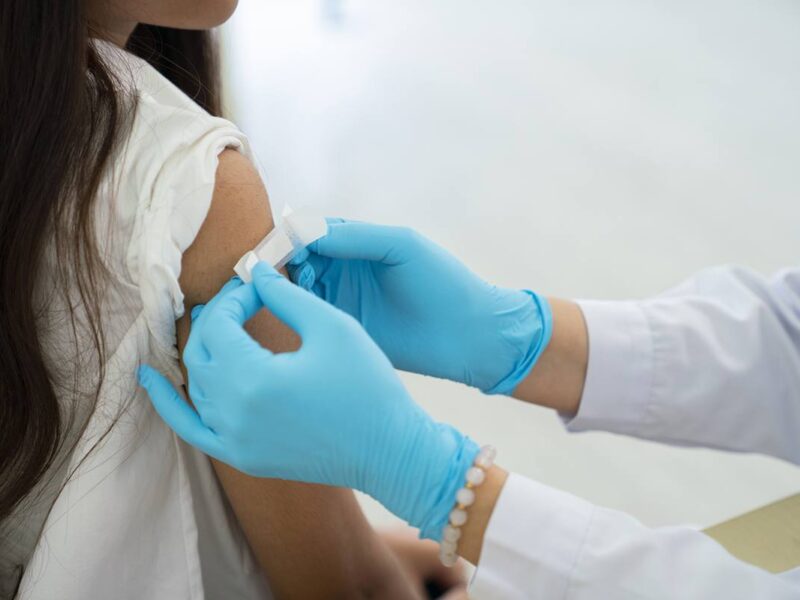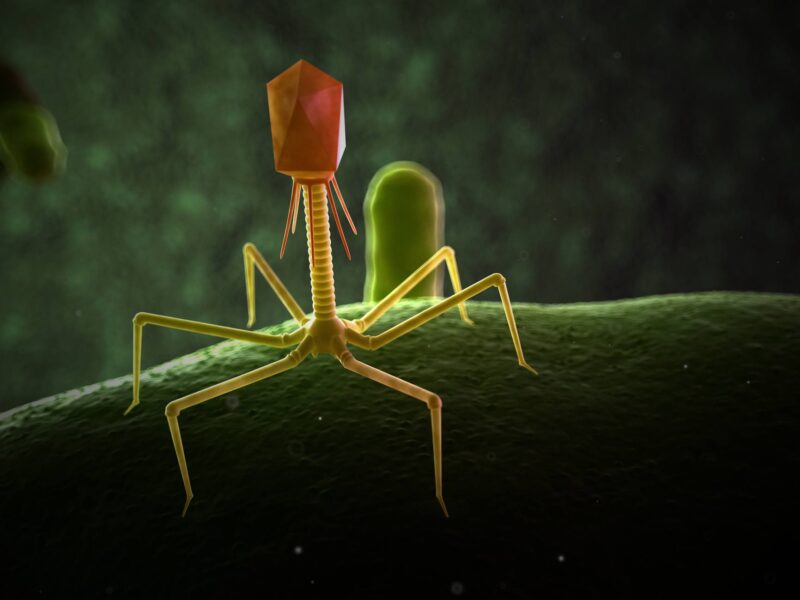What We Know About The Omicron Variant

At this point, there are more questions than answers about the new coronavirus variant discovered in southern Africa, says Texas A&M University epidemiologist Rebecca Fischer. While the new Omicron variant is being monitored as a “variant of concern” by the World Health Organization, she said, there is still “so little known.”
A lab in southern Africa – a research hub with strong capacity in genomic surveillance – raised the flag on the new variant, Fischer said. This version has a number of mutations that could affect the ability of antibodies to bind to and neutralize the virus, and could potentially facilitate the virus to invade immune defenses. But it’s unclear how much of a threat Omicron poses; it will take weeks, maybe months, before scientists will know whether it causes more serious illness, who it affects, how to most effectively treat it, or how it responds to vaccines.
“That picture is still being drawn,” Fischer said. “This is important, because I think a lot of people don’t understand that the surveillance system is meant to raise an alert flag as early as possible – before we actually have all the information.”
Now that the flag has been raised, she said, policymakers and public health officials can start devising strategies for immediate mitigation and prevention.
Laboratory studies will be able to quickly provide answers about how antibodies and therapeutics interact with the variant, but it will take time to gather clinical and epidemiological observations.
“Now we really only have anecdotes, and anecdotes are not the evidence base that we need,” Fischer said. “Some reports suggest symptoms may be milder with this variant, and some are saying that it’s a younger population that’s affected. But until we really have enough time to gather an appropriate amount of data, it’s premature to say those things are truth.”
Until then, Fischer said it will be important to boost vaccination coverage. The WHO says it is still working to understand how effective currently available vaccines will be against Omicron. But even if the variant is less subject to the neutralizing effect of vaccine-induced antibodies, Fischer said the vaccines are still likely to be “incredibly effective” at preventing death and hospitalizations.
The Centers for Disease Control and Prevention now encourages all adults to get a booster shot. Data is clear that they provide an added level of protection. “Imagine, that over time our immune response is waning,” she said. “That next shot is going to bring it back up to that high level and sustain it for some time.”
Several countries have restricted travel from southern Africa. And while travel is one of the fastest ways that infectious diseases are spread, it’s unclear whether attempts to contain the variant to a geographic area will have much of an impact. According to the Associated Press, on Dec. 1 a person in California became the first in the United States with an identified case of the Omicron variant of COVID-19 — they reportedly had returned from South Africa on Nov. 22 and tested positive days later.
“I think we’ve learned now that this variant is already appearing across the globe, so travel bans are not going to be as effective as they may have been if this was day one, patient zero,” she said.
For now, people should turn to reliable news sources for information as it becomes available.
“I think people should be cautious and do all the things they know how to do to prevent the spread of the virus, but not be terrified or scared. It’s a time for caution, but there is nothing to suggest we should be in panic mode,” Fischer said.
Media contact: Caitlin Clark, caitlinclark@tamu.edu





